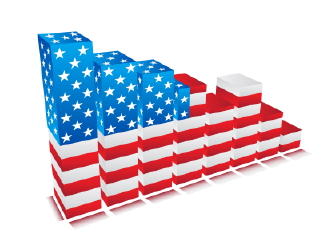.
Posted on August 28, 2012.

On one side, there is the United States in decline. On the other, there is emerging China. In the middle, there are the maritime routes crucial for the exportation of oil, like the Strait of Hormuz in the Persian Gulf.
It is in these dangerous waters that Alexandre Trudeau began filming “The New Great Game,” a 54-minute documentary about nothing less than the new world order. Shown tonight at the World Film Festival, this short, ambitious film demonstrates how the Americans are losing control of this strategic region, which has so far assured their hegemony.
“The United States has made big mistakes. They are exhausted,” says the filmmaker, who visited 19 countries and gave three years of his life to this project.
The “Pax Americana,” assured by many Yankee bases in the area, has indeed never been more fragile. In the Indian Ocean, the Persian Gulf and the Suez Canal, new players are multiplying and roaming silently, searching for a breach or an occasion that would put them in the loop. The giant is showing signs of fatigue. The developing changes will not necessarily be to his advantage.
“Before, the issues were local. Now they are planetary,” explains Trudeau. “Europe needs oil. China is looking for diplomatic and commercial partnerships. The Saudi regime is in a precarious situation. Iran knows that it can exercise negative control over the Strait of Hormuz. If we add the Arab Spring, we come to the point where the West can no longer dictate the results in the part of the world that is most important for oil.”
We think about Egypt, but also about free radicals such as Somali pirates, who, despite their ridiculous numbers, keep disturbing this region of the world. A real stick in the wheels of progress, this “independent player,” who boards oil tankers over and over, is a sign for rivals that the Americans do not have total control of the chess board. This is, however, a blessing in disguise because chasing pirates justifies a bigger Western presence in the Indian Ocean.
It is interesting that Trudeau set out in the beginning to make his film about Somali pirates. But the filmmaker quickly discovered that the situation in the Horn of Africa was a symptom of a much bigger issue. “I wanted to find what was hiding behind the pirates. But what is behind the pirates,” he says, “is in fact the struggle between empires.”
The new great game is far from finished, and the issue seems to just be taking shape. With the inexorable rise of China, the Americans are now in a defensive position. Trudeau hopes that Uncle Sam will resist the temptation to flex his muscles. That strategy would not only cause unpredictable and extreme reactions, but could also accelerate American decline.
By taking the road of soft power, he says, the United States could preserve something more precious, like justice, human rights and democracy. “In this period, it is imperative that the West think about its legacy and secure it,” concludes the documentary maker, “but this legacy will be wasted if we continue to promote the use of force.”
“The use of force shows one’s limits. Contrary to certain established notions, it isn’t force that matters. It’s law and justice.”
He could have chosen politics, like his brother Justin and his famous father. But Alexandre Trudeau knew very early on that this circus was not for him. His career as a documentary maker, he says, allows him to express his view of the world more liberally. “The documentary maker is an observer. A politician is more than an observer. The documentary maker chooses his audience; the politician must adapt to his audience. The documentary maker makes fewer compromises. The politician has to concern himself with what people think of him. How dreadful!”

Leave a Reply
You must be logged in to post a comment.